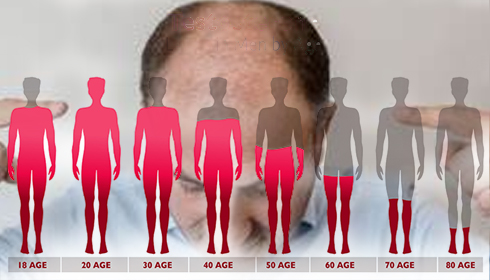
Lower Testosterone Can Shorten Lifespan in Men: Study
A groundbreaking study published today in the prestigious journal Annals of Internal Medicine has unveiled a concerning correlation: low testosterone levels in men may be associated with a shorter lifespan.
Conducted by a collaborative team of researchers from the University of Western Australia, alongside counterparts from Australia, North America, and Europe, this study represents a comprehensive analysis of 11 previous studies involving over 24,000 subjects. The researchers set out to investigate the relationship between sex hormones and mortality, with a particular focus on ageing men.
The findings, which have been eagerly anticipated by the medical community, provide crucial insights into the complex interplay between testosterone levels and key health outcomes in men as they age. According to the study, low baseline levels of testosterone are not only linked to an increased risk of all-cause mortality but also to a heightened risk of cardiovascular death.
The researchers employed a rigorous methodology, conducting a systematic review and meta-analysis of prospective cohort studies. These studies included community-dwelling men whose total testosterone concentrations were measured using mass spectrometry, with a follow-up period of at least five years.
One of the study's key revelations is the significant risk posed by low total testosterone concentrations. Men with testosterone levels below 7.4 nmol/L (<213 ng/dL) were found to have a higher risk of all-cause mortality, irrespective of luteinizing hormone (LH) concentration. LH, a crucial chemical messenger in the bloodstream, plays a pivotal role in sexual development and fertility in adults.
Furthermore, the data indicated that men with testosterone concentrations below 5.3 nmol/L (<153 mg/dL) faced an elevated risk of cardiovascular death, underscoring the importance of maintaining optimal testosterone levels for heart health.
Dr Yu-Ming Ni, a cardiologist and lipidologist at MemorialCare Heart and Vascular Institute, cautioned that the study's findings raise important questions about the underlying causes of low testosterone. Factors such as obesity, liver issues, and drug interactions could contribute to decreased testosterone levels, highlighting the need for further research to elucidate these mechanisms.